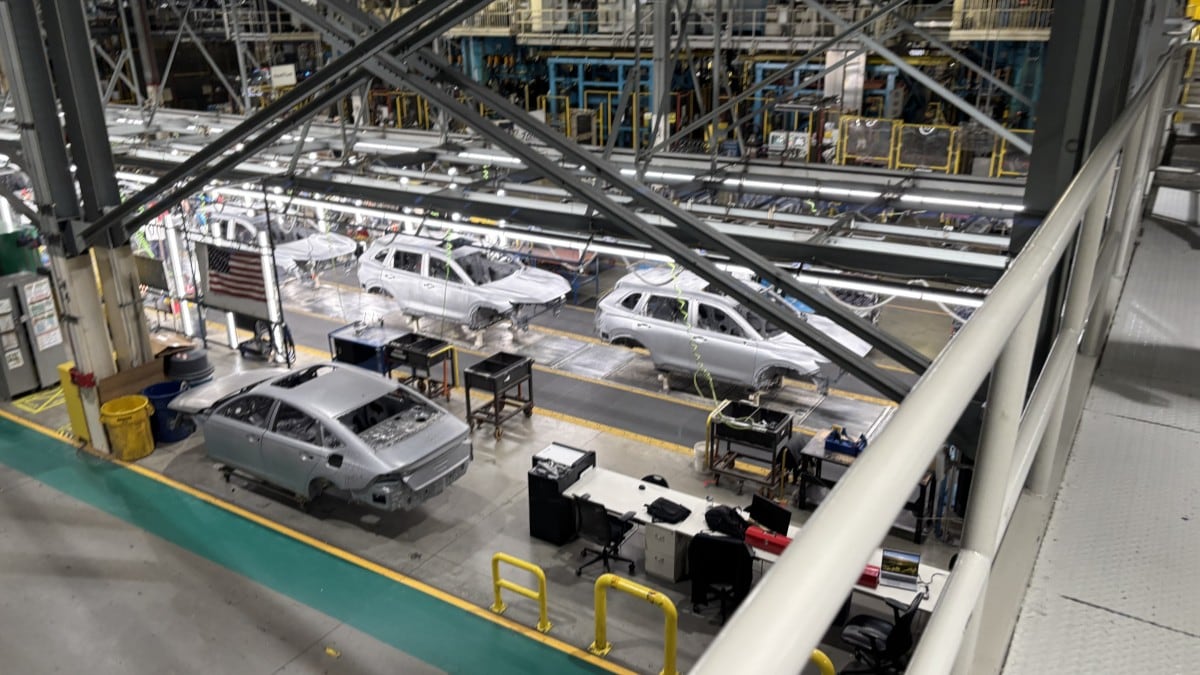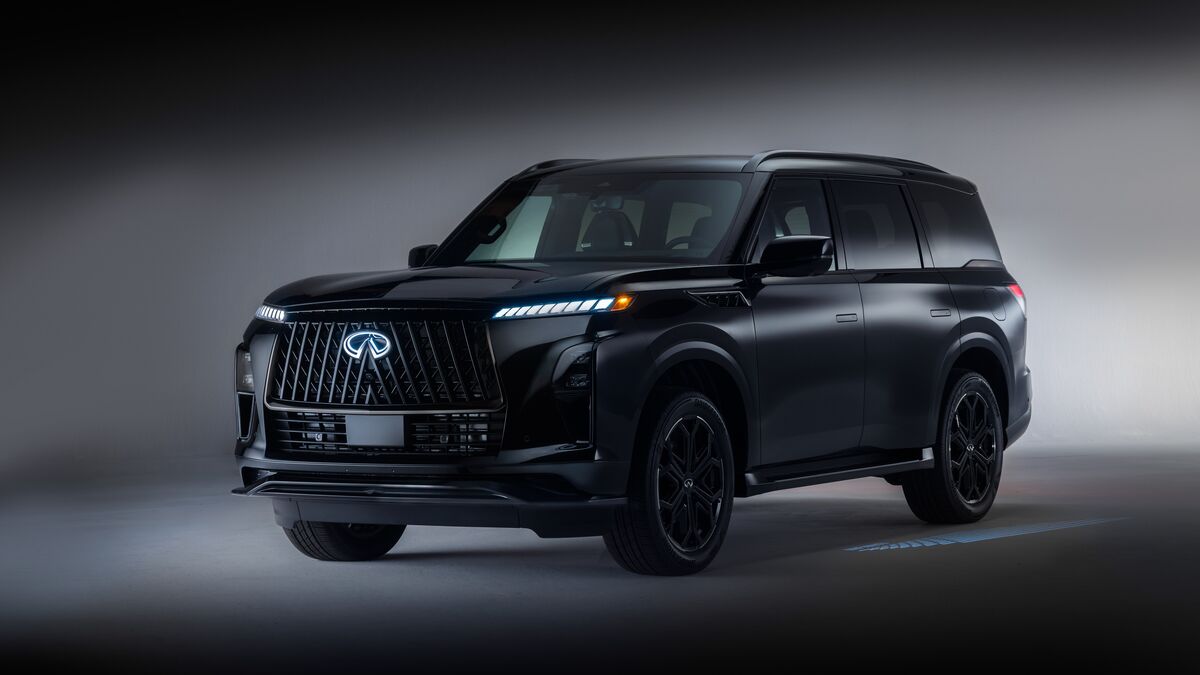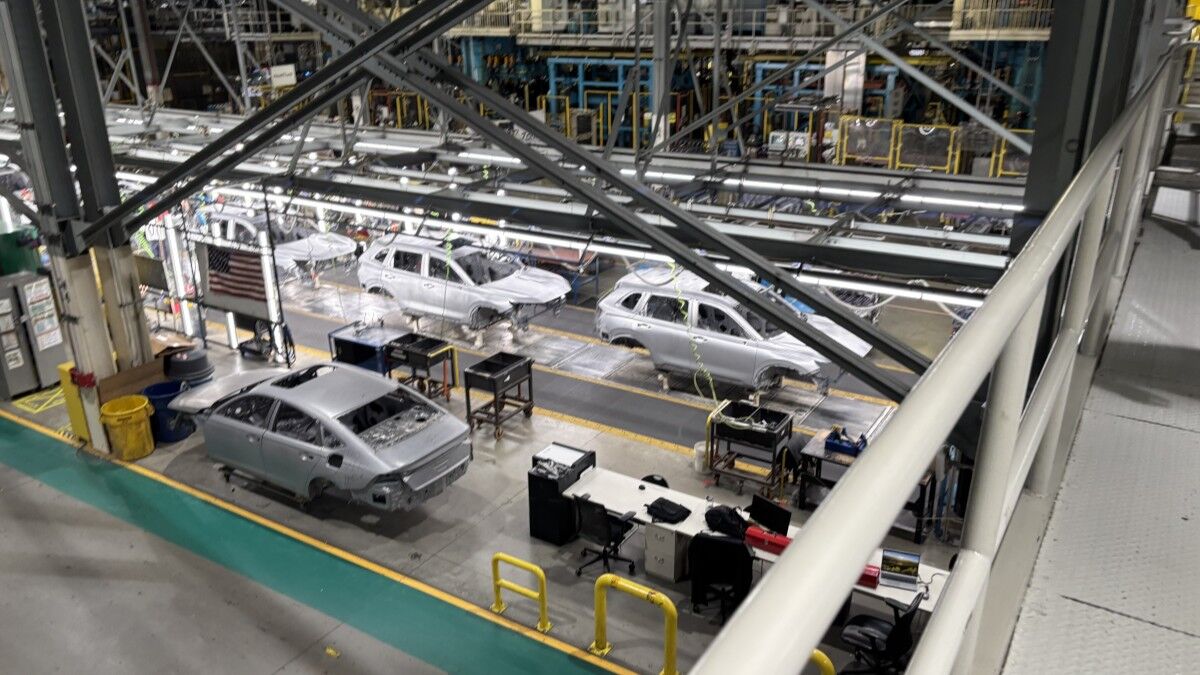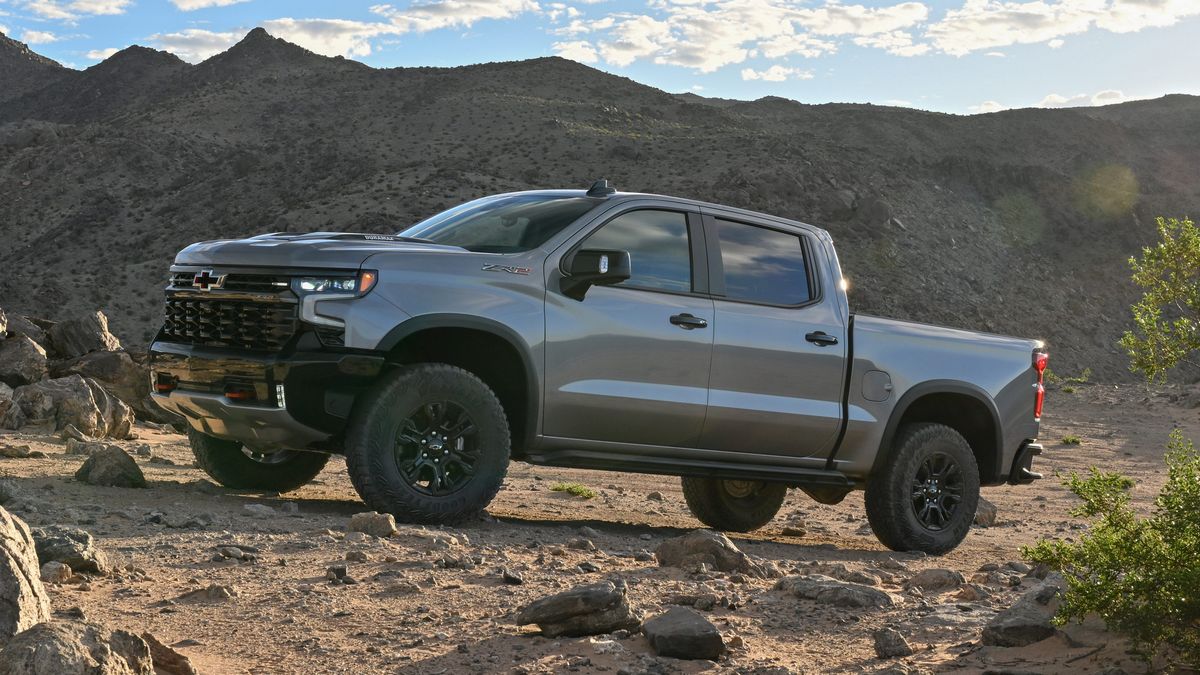- Carmakers use rare earth minerals in many parts; most come from China
- China is restricting exports as part of the growing trade war
- That could pause car factories worldwide
Last month, Ford paused production of its popular Explorer SUV because a factory ran out of tiny magnets. A week later, a Volvo factory in South Carolina similarly paused for a week over a parts shortage. A Volvo spokesperson declined to tell us why, but magnets are the likely culprit.
Now, Reuters reports, executives at many automakers have been “driven into their war rooms, concerned that China’s tight export controls on rare-earth magnets — crucially needed to make cars — could cripple production.”
Some companies are in a better position than others. But the auto industry, already reeling from tariffs, could soon face a supply crisis much like the microchip shortage that slowed production in 2022.
Related: Chinese Magnet Shortage Could Shutter Car Factories
Here’s what’s happening.
Rare Earth Minerals Are Everywhere in Cars
- Tiny quantities power microchips and electric motors
- Large quantities power hybrid and EV motors and batteries
Rare earth minerals are elements mined in small quantities and used in electrical equipment. They’re all over today’s cars. They appear in tiny amounts in the microchips that control high-tech systems and in the magnets that power tiny electric motors that raise windows and spin fans. They’re in large quantities in hybrid and electric vehicle (EV) motors and batteries.
The world has limited sources of them. Geologists have found them in many countries. But China has the world’s most well-developed rare earth mining and processing industry.
In a few cases, the country has a stranglehold. The New York Times notes, “China produces the entire world’s supply of samarium, a particularly obscure rare earth metal used almost entirely in military applications.”
Car Factories Rarely Store Supplies
- Just-in-time factories use parts as they arrive
Most of today’s car factories operate on a just-in-time model. They don’t store up parts and supplies and use them over a period of weeks. They receive shipments of parts daily and use them immediately.
Related: Honda Factory Shows Complexity of Car Tariffs
That makes them hyper-efficient and saves costs for automakers when the entire supply chain is humming. But it makes them vulnerable to minor disruptions. If a small part is delayed, an entire factory can pause, idling thousands of workers.
Some cars are already in short supply due to the new tariffs. The volume of new cars shipped to the U.S. fell by more than 70% last month, according to a recent analysis of maritime trade.
Factory pauses could lead to a new car shortage like the one seen at the height of the COVID-19 pandemic.
The Metals Are Now Part of a China/U.S. Trade Dispute
- U.S. and Chinese negotiators are meeting this week about tariffs and export blocks
Against that backdrop, China recently restricted shipments of rare earth metals to the U.S.
Trade negotiators say the move came as part of a burgeoning trade war. President Trump has enacted huge tariffs on Chinese goods, partly in response to what he calls “non-tariff barriers” like import restrictions.
China responded, in part, by halting the flow of seven rare earth minerals to the U.S. and its major trade partners.
In late May, the U.S. answered by pausing shipments of certain semiconductors China uses when building airplanes.
The New York Times explains, “The new limits are pushing the world’s largest economies a step closer toward supply chain warfare, as Washington and Beijing try to flex their power over essential economic components in an attempt to gain the upper hand in an intensifying trade conflict.”
The two sides are currently in talks.
Some Automakers Are Adjusting
- China has reportedly granted 6-month licenses to some companies
- A report claims Hyundai, Kia, and Genesis have a 1-year stockpile of the minerals
Those talks have yielded some progress. Reuters reports, “China has granted temporary export licenses to rare-earth suppliers of the Detroit 3 automakers,” citing “two sources familiar” with the talks.
The licenses are reportedly good for six months.
Other automakers are revisiting whether the just-in-time model makes sense. A separate Reuters report claims that the parent company of Hyundai, Kia, and Genesis now “has a rare earths stockpile that can last about a year, and it does not expect any near-term impact from global supply chain disruptions caused by China’s export curbs.”
The company believes it has “far more wiggle room” than its rivals, Reuters claims.
In the meantime, some are pursuing alternative technologies that could leave them less dependent on China. InsideEVs reports that both Ford and General Motors are developing new lithium manganese-rich (LMR) batteries that they may be able to build without Chinese materials.








